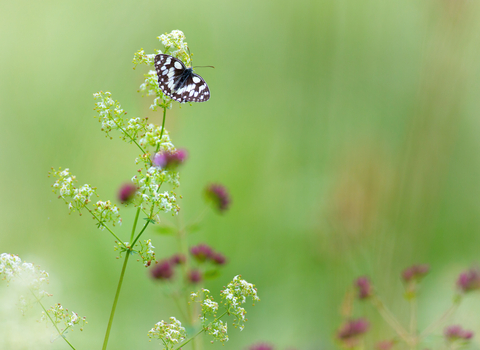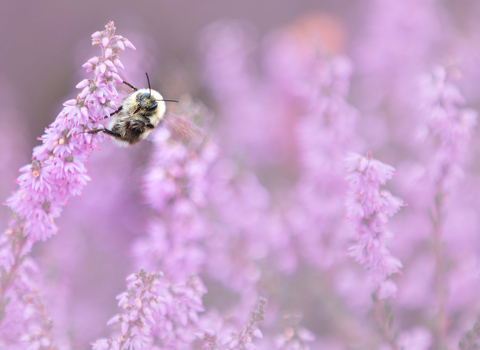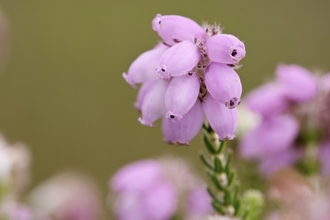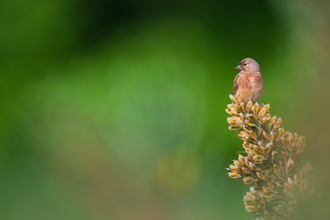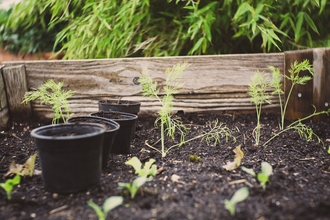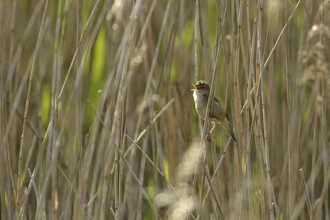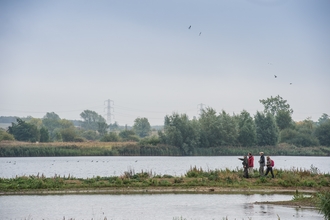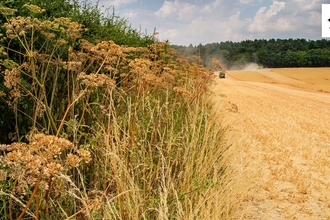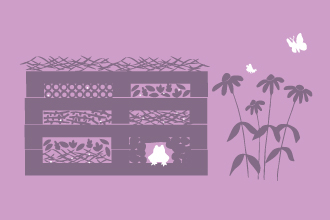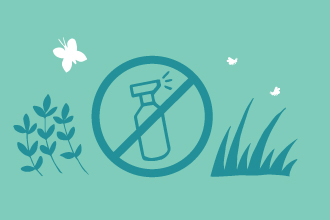Our insects are in trouble
In the UK, our insect populations have suffered drastic declines, which are set to have far-reaching consequences for both wildlife and people.
With a third of our food crops pollinated by insects, and as many as 87% of our plants pollinated by animals (and in the majority by insects) there is a lot to lose. Much of our wildlife, be it birds, bats, reptiles, amphibians, small mammals or fish, rely on insects for food. Without them, we risk the collapse of our natural world.
A report, Insect Declines and Why They Matter, published in November 2019 by an alliance of Wildlife Trusts in the south-west, brought together evidence that showed the loss of 50% or more of our insects since 1970, and the shocking reality that 41% of the Earth's remaining five million insect species are now 'threatened with extinction'.
What can be done?
Whilst the news for insects is bleak, there remains much that can be done to bring about their recovery, but fast action is required. Become an insect champion and download one of our free guides to help you and your community.
Take action at home or in your community
To showcase what is needed, The Wildlife Trusts commissioned a second report published in July 2020, Reversing the Decline of Insects, which looked at case studies around the UK that are working hard to bring back insects.
To reverse the decline of insects and allow them to thrive once more, The Wildlife Trusts want to see at least 30% of land and seas properly connected, better protected and suitably managed for nature. To achieve this, it requires us all to become insect champions, taking action at home and work, in our communities and schools.
It's also essential that there is a halt to the unnecessary use of pesticides where people live, work and farm, with support for all sectors to make the transition towards becoming pesticide-free.
The Wildlife Trusts are currently supporting the Pesticide Collaboration campaign to ban the unnecessary use of urban pesticides. Together, we are calling for the UK Government to phase-out the use of pesticides in publicly-run spaces.
Sign the Pesticide Collaboration's Petition
Help save our bees
For the fourth year in a row the UK Government has approved the use of a pesticide so potent that a a single teaspoon could kill 1.25 billion bees. Tell the UK Government and British Sugar why you want neonic-free sugar and nature-friendly farming.
Examples of action being taken
We are taking action for insects up and down the UK. From restoring habitat, working with land managers and councils, to reintroducing species, Wildlife Trusts are helping to restore our insect populations and calling for this work to be scaled up so that we can see them thrive once more. We have developed a partnership with Pesticide Action Network to influence Local Authorities to reduce pesticide use, and to support the establishment of more 'pesticide-free towns'.

